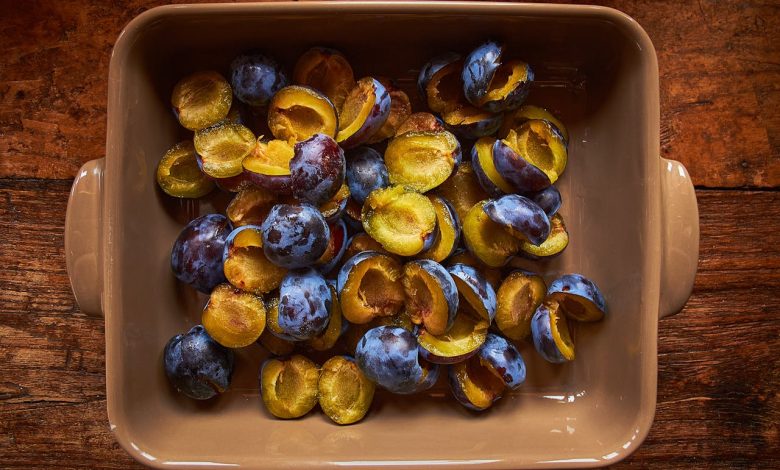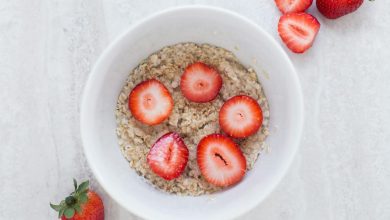Why Eating Prunes Is Great for Your Digestion, Bones, and Heart, According to Experts

Prunes, often underestimated as a simple snack, are nutritional powerhouses that offer an impressive array of health benefits. Known for their sweet flavor and chewy texture, these dried plums are particularly celebrated for their ability to support digestion, strengthen bones, and promote heart health. Let’s explore why prunes should be a staple in your diet, backed by expert insights.
1. Digestive Health: A Natural Remedy
Prunes are best known for their role in supporting digestive health. This benefit is largely attributed to their high fiber content and natural compounds that promote regularity.
- Rich in Soluble and Insoluble Fiber:
Prunes contain both types of fiber, aiding in smooth digestion and preventing constipation. One prune contains about 1 gram of fiber, which adds up quickly in a small serving. - Natural Sorbitol Content:
Prunes are packed with sorbitol, a sugar alcohol with a mild laxative effect that helps maintain a healthy bowel movement. - Supports Gut Health:
The natural fiber in prunes acts as prebiotics, feeding good bacteria in the gut. A balanced microbiome improves digestion and enhances overall gut health.
Expert Tip:
Registered dietitians recommend consuming 4-5 prunes daily for digestive benefits. Combine them with a glass of water for maximum efficacy.
2. Bone Health: Building Stronger Bones
Prunes are emerging as a superfood for bone health, particularly for women and older adults at risk of osteoporosis.
- High in Bone-Protective Nutrients:
Prunes are an excellent source of vitamin K, magnesium, and boron—all of which are essential for maintaining bone density. - Prevents Bone Loss:
Research has shown that prunes can reduce bone resorption (breakdown) while promoting bone formation. A study published in Osteoporosis International found that eating 5-10 prunes daily helped increase bone mineral density. - Rich in Antioxidants:
The polyphenols in prunes combat oxidative stress, a factor that contributes to bone degradation over time.
Expert Tip:
Incorporate prunes into your snacks or meals, such as adding chopped prunes to oatmeal, for a bone-strengthening boost.
3. Heart Health: Protecting Your Ticker
Prunes are heart-friendly, thanks to their nutrient profile that supports cardiovascular health.
- Lowers Cholesterol Levels:
Soluble fiber in prunes binds to excess cholesterol, helping to remove it from the body. This reduces LDL (bad cholesterol) and improves overall cholesterol balance. - Manages Blood Pressure:
Prunes are naturally high in potassium, a mineral essential for controlling blood pressure. Potassium helps relax blood vessels and counteracts the effects of sodium in the diet. - Rich in Antioxidants:
Prunes contain phenolic compounds that reduce inflammation and protect against oxidative damage, both of which are linked to heart disease.
Expert Tip:
Swap sugary snacks for a handful of prunes to satisfy your sweet tooth and promote heart health simultaneously.
How to Incorporate Prunes into Your Diet
Prunes are versatile and can be enjoyed in a variety of ways:
- As a snack: Eat them plain or pair them with nuts for a balanced snack.
- In baking: Add prunes to muffins, bread, or cookies for a natural sweetness boost.
- In smoothies: Blend prunes with yogurt, milk, and your favorite fruits for a nutrient-packed drink.
- In savory dishes: Toss chopped prunes into salads, stews, or grain bowls for a sweet-tart contrast.
The Bottom Line
Prunes are more than just a quick fix for constipation—they’re a nutrient-dense superfood that supports your digestion, strengthens your bones, and keeps your heart healthy. With their convenience and versatility, adding prunes to your diet is an easy step toward better overall health.
Quick Prune Facts:
- Serving Size: 4-5 prunes per day is enough for most benefits.
- Storage: Keep prunes in an airtight container in a cool, dry place to maintain freshness.
- Diet Compatibility: Prunes are naturally gluten-free, vegan, and fit into many dietary plans, including paleo and Mediterranean diets.
So, the next time you’re looking for a nutritious snack, reach for prunes. Your gut, bones, and heart will thank you!



